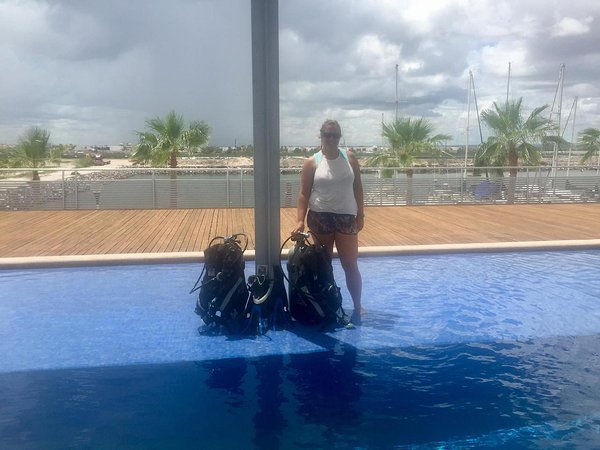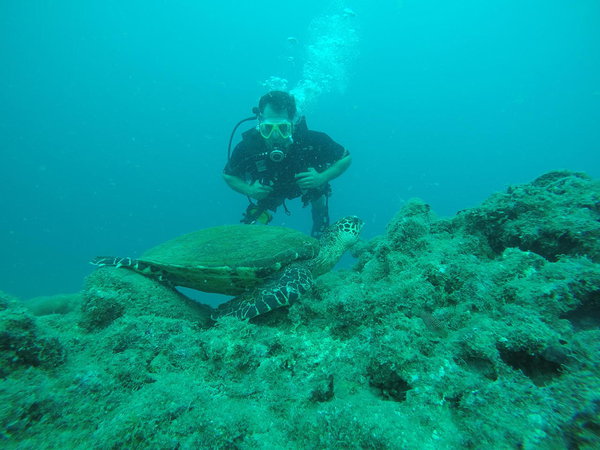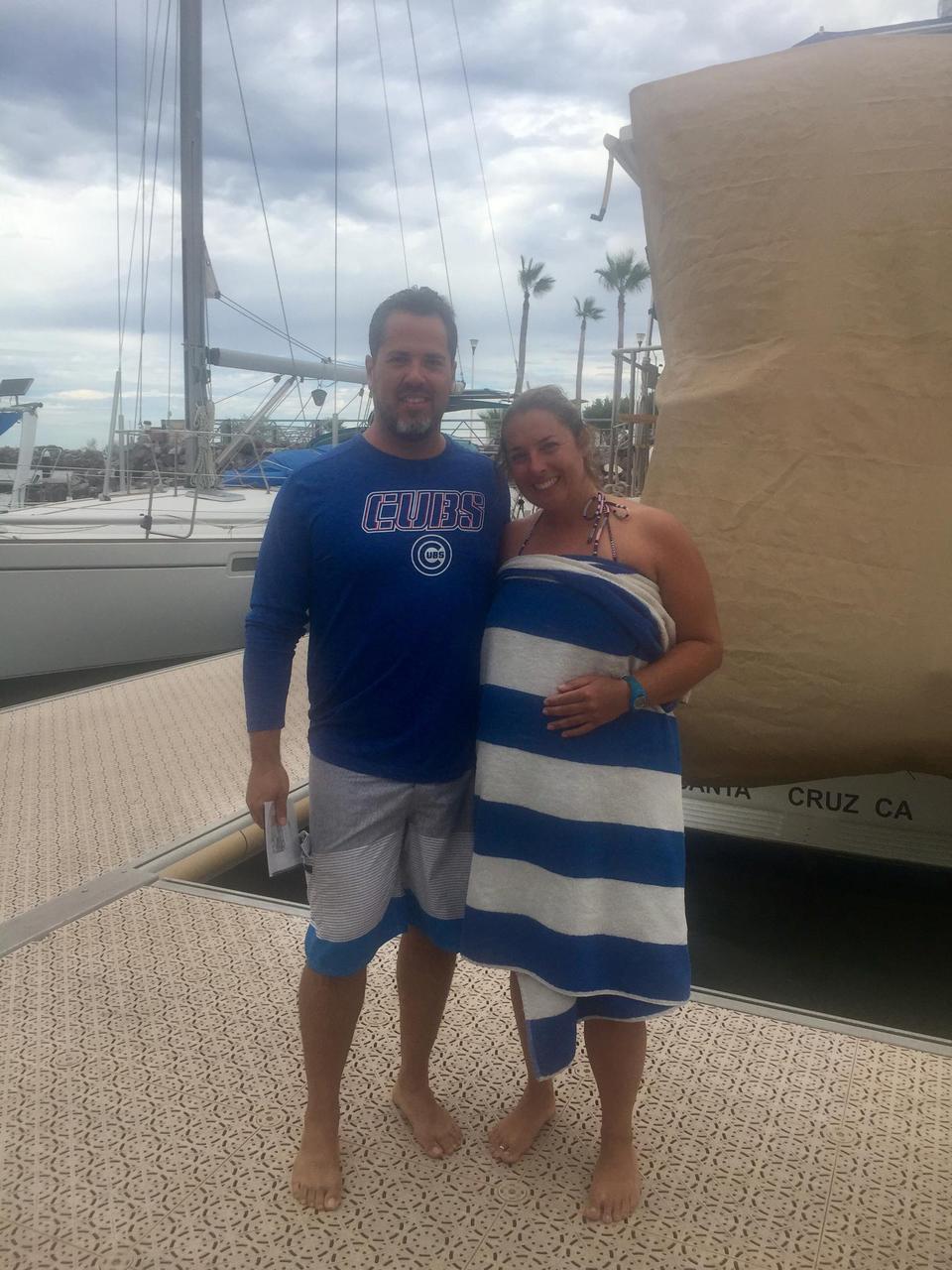Learning to Scuba Dive
I’ve been a diver for over 15 years and have 1000’s of dives under my belt but I still clearly remember the day I first breathed underwater and how it felt. I was in Koh Tao, Thailand and my friend and I were on our Summer break from University. We had decided before we left England that it was something we wanted to try because it was an adventure to be had and seemed a great way to get to see more of Thailand (underwater as well as on land!) and to explore exotic coral reefs. We visited the dive shop we had been recommended by a friend and our Instructor was a friendly Swedish guy, we got set up with accommodation and were given our books to start reading for the next day. As we learned a little more about the theory realization set in and we wondered what we may have let ourselves in for! Our pool sessions were done off of the beach in front of the dive shop and it was a great way to distract us from any nerves when we could see some little fish swimming by! By the end of the first day I already felt comfortable in the water, so much so that at the end of the course I signed straight up for my Advanced Course – I was sold on it by the opportunity to see sharks during the deep dive! For me the love of marine life was natural – I had always loved land animals so the marine creatures did not fill me with fear – only wonder. They still do. That is why I dive – to feel wonder and to be able to share this with others.
70% of our
planet is composed of water and we know more about the surface of the moon than
we do about the deep ocean; for those of you who seek to explore something
different and venture into the unknown then Scuba Diving is a sport that can
take you there. However not all courses
are equal – I’m not talking about the different agencies, I’m talking about
Instructors. There are many different
agencies with whom you can take your entry level open water course and they all
offer something very similar – you will find people talking about advantages of
one agency over another but in my experience the agency (at least for Open
Water courses) is not as important as the person giving the course. I teach with PADI and have always been happy with the quality of service that is offered to me as a professional and what they do for recreational divers. Different instruction styles suit different
people and different personalities mesh well but what you really want is
someone who will teach you mastery of skills and buoyancy and will ensure that
you are comfortable, safe and competent diver before they sign you off with
your certification. Unfortunately
businesses are under competition to make courses cheaper to compete with other
adventure sports and this can sometimes lead to a reduction in quality or to
busy classes where you don’t get any individual attention. With El Duque Adventures, when I teach I like to make sure that the
classes are personalized to you and your best learning method. I make my courses affordable but price is not the bottom line, being an owner of the business I ensure that I teach to a standard I am happy with and not one that will just complete the course to the bare minimum in the shortest time. I work with small classes and often private
tuition. This allows me to focus on you
as a diver and what you do and don’t understand or need to spend extra time
on. It also gives us a chance to get to
know each other and become comfortable enough to (hopefully!) ask any questions
you have.
When I do full Open Water courses we usually get to spend some time in the pool and the ocean for our confined water skills so that we have plenty of time to feel comfortable in the water before going deeper. I like to do a combination of shore dives and boat dives so that you can experience different types of conditions, thus making your training more thorough. It also gives us plenty of opportunity to work on our buoyancy over sandy bottom areas with no coral to damage before we head out to the dive sites. In my opinion buoyancy is not a skill to be covered during the course it is a habit and should be second nature. For this reason I teach most of my confined water sessions in the horizontal position so that we can work on doing our skills whilst neutrally buoyant. This is a more realistic diving situation as on very few dives would you be able to find a patch of sand to kneel on whilst you clear your mask! You want to be able to do it whilst swimming along or whilst stopped and suspended in the midwater. During our open water dives we work on skills at different times throughout the dive and open cover them multiple times to ensure mastery and comfort completing it at different depths and when you are not expecting it. There is no traditional ‘skills section’ and ‘dive section’ they are integrated into the dive. This also makes training more realistic to diving and what students will experience when they are in the water.
I like to ensure that when a diver finishes their training they are a competent diver so I make them question the sites that we go to and also the dive plans. Students take part in planning the dive so that it ensures understanding about why we are doing things in a certain way – it encourages independent thought as opposed to a ‘follow the Divemaster’ mentality. I want divers to love and respect the underwater world as much as I do and that is not achieved by giving the easy way out or allowing a student to pass when they are not comfortable. It happens by teaching respect for the sport and the environment and allowing students to develop and learn at their own pace. You should finish your course feeling satisfied and wanting to go out and practice and have fun and hopefully with the desire to keep learning and improving – both your dive skills and also your knowledge and understanding of the world that you are visiting. In my mind this is what a good course and a good instructor should look like.
Obviously you should coordinate too! Just like Omar and I after his last dive! Congratulations Omar and welcome to the underwater world.


